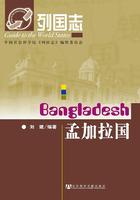The "Crawford County plan," as it was generally called, was adopted by various localities in many States.In 1866 California and New York enacted laws to protect primaries and nominating caucuses from fraud.In 1871 Ohio and Pennsylvania enacted similar laws, followed by Missouri in 1875 and New Jersey in 1878.By 1890 over a dozen States had passed laws attempting to eliminate the grosser frauds attendant upon making nominations.
In many instances it was made optional with the party whether the direct plan should supersede the delegate plan.Only in certain cities, however, was the primary made mandatory in these States.
By far the larger areas retained the convention.
There is noticeable in these years a gradual increase in the amount of legislation concerning the nominating machinery--prescribing the days and hours for holding elections of delegates, the size of the polling-place, the nature of the ballotbox, the poll-list, who might participate in the choice of delegates, how the returns were to be made, and so on.By the time, then, that the Australian ballot came, with its profound changes, nearly all the States had attempted to remove the glaring abuses of the nominating system; and several of them officially recognized the direct primary.The State was reluctant to abolish the convention system entirely; and the Crawford County plan long remained merely optional.But in 1901 Minnesota enacted a state-wide, mandatory primary law.Mississippi followed in 1902, Wisconsin in 1903, and Oregon in 1904.This movement has swept the country.
Few States retain the nominating convention, and where it remains it is shackled by legal restrictions.The boss, however, has devised adequate means for controlling primaries, and a return to a modified convention system is being earnestly discussed in many States to circumvent the further ingenuity of the boss.A further step towards the state control of parties was taken when laws began to busy themselves with the conduct of the campaign.
Corrupt Practices Acts began to assume bulk in the early nineties, to limit the expenditure of candidates, and to enumerate the objects for which campaign committees might legitimately spend money.These are usually personal traveling expenses of the candidates, rental of rooms for committees and halls for meetings, payment of musicians and speakers and their traveling expenses, printing campaign material, postage for distribution of letters, newspapers and printed matter, telephone and telegraph charges, political advertising, employing challengers at the polls, necessary clerk hire, and conveyances for bringing aged or infirm voters to the polls.The maximum amount that can be spent by candidates is fixed, and they are required to make under oath a detailed statement of their expenses in both primary and general elections.The various committees, also, must make detailed reports of the funds they handle, the amount, the contributors, and the expenditures.
Corporations are forbidden to contribute, and the amount that candidates themselves may give is limited in many States.These exactions are reinforced by stringent laws against bribery.
Persons found guilty of either receiving or soliciting a bribe are generally disfranchised or declared ineligible for public office for a term of years.Illinois, for the second offense, forever disfranchises.
It is not surprising that these restrictions have led the State to face the question whether it should not itself bear some of the expenses of the campaign.It has, of course, already assumed an enormous burden formerly borne entirely by the party.The cost of primary and general elections nowadays is tremendous.A few Western States print a campaign pamphlet and distribute it to every voter.The pamphlet contains usually the photographs of the candidates, a brief biography, and a statement of principles.
These are the principal encroachments made by the Government upon the autonomy of the party.The details are endless.The election laws of New York fill 330 printed pages.It is little wonder that American parties are beginning to study the organization of European parties, such as the labor parties and the social democratic parties, which have enlisted a rather fervent party fealty.These are propagandist parties and require to be active all the year round.So they demand annual dues of their members and have permanent salaried officials and official party organs.















